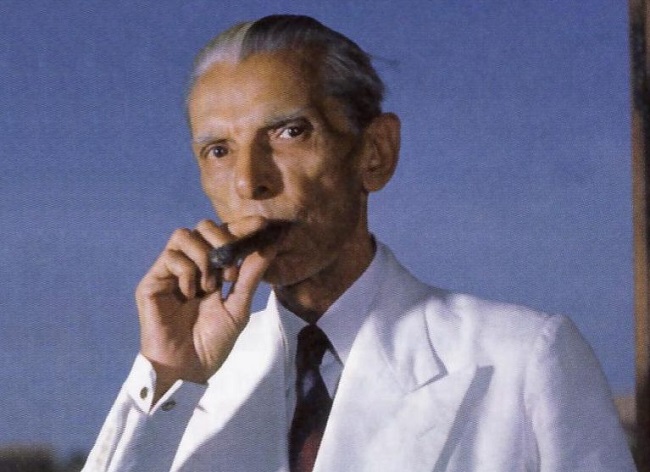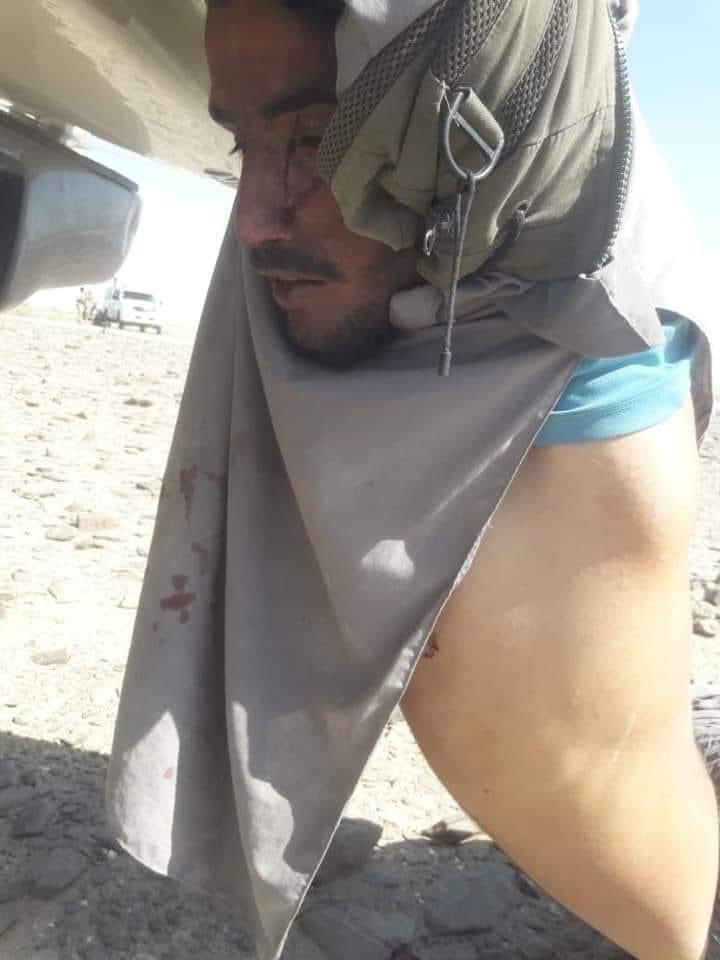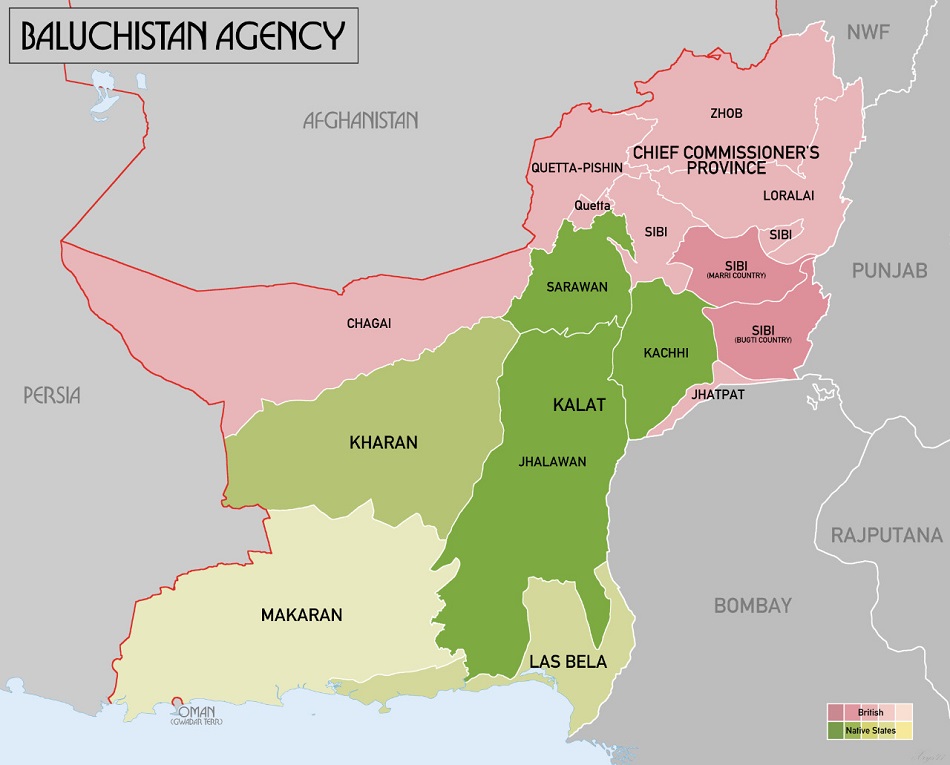Grabbing the benefit of world’s attention towards Coronavirus pandemic, Pakistan Army has intensified its military operations in occupied Balochistan. Pakistani media is not only biased against the Baloch freedom movement but it is also under the immense pressure of army and intelligence agencies. Media is closely being monitored and controlled by Pakistan Army and intelligence services who have drawn a red line regarding reporting, discussions, and debates on the incidents of armed conflict, human rights violations, war crimes of security forces and their proxy militias in occupied Balochistan. If any media person or media house dares to violate the red line, it is made to face consequences.
The above said situation is rapidly treading towards the worst human tragedy. Though Baloch patriotic leadership is striving hard to get attention of global institutions like UNO, international bodies of the world community and neighboring countries like India and Afghanistan towards the worsening situation of Balochistan but it seems that world powers have their own priorities in the region and neighboring countries also have their own incapacity and expediencies. That’s why all of them persistently ignore the longstanding armed conflict of Balochistan where human rights violations and war crimes of Pakistan Army are increasing day by day.
The armed conflict in Balochistan traces its roots in the aftermath of World War-II when Great Britain in 1947 decided to free her colonies in the Indian subcontinent and Balochistan. But before doing so Britain decided to ensure the creation of a client state in the region for safeguarding her interests in the Indian subcontinent and vital regions of West Asia and Central Asia. So Pakistan was designed and created by Britain for that purpose.
British authorities knew that without incorporating Balochistan, the new state of Pakistan won’t be able to serve their purported interests. Consequently, before bringing Pakistan into being, British authorities promulgated the inclusion of British Balochistan province into the future state of Pakistan. This promulgation was made on June 29, 1947 just three days before a joint meeting of the members of Shahi Jirga and Quetta Municipality, summoned on July 1, 1947 to decide the future of British Balochistan. British authorities had purposefully made the said promulgation with an aim to sabotage the joint session of Shahi Jirga and Quetta Municipality members and they succeeded in doing so because after the said promulgation the joint session was never held.
Khan of Kalat, the sovereign of Balochistan, and Baloch people had strongly rejected the British authorities’ decision regarding British Balochistan’s inclusion in the future state of Pakistan because that was totally an illegal act. British Balochistan was not an Indian province, instead, it comprised of territories obtained by the British authorities on lease from Khan of Kalat and certain districts cut from the Pashtun region and included in the province. A month later, a joint meeting between Khan of Kalat and All India Muslim League’s leadership presided over by Viceroy of India, Lord Mountbatten, was held in Delhi on August 4, 1947.

Delegation of Khan Kalat had again raised the issue of the promulgation of British Balochistan’s illegal merger in Pakistan but the same was deferred on the pretense of shortage of time because Britain was about to free India eleven days later. So it was agreed that the legal status of British Balochistan territories will be determined and decided by Pakistan and Khan of Kalat through mutual negotiations as soon as Pakistan was created.
After the creation of Pakistan, the Khan of Kalat, time and again, agitated over the issue of British Balochistan’s illegal merger with Pakistan. But Pakistan, instead of settling that issue, had started exerting pressure on Khan of Kalat for accession. Under the pressure of Pakistan, when the proposal for accession to Pakistan was presented before the Parliament of Kalat State (Balochistan), it was unanimously rejected by both of the houses of Kalat State Parliament.
Being frustrated with the decision of Kalat Parliament, Pakistan decided to occupy the entire Balochistan using deceit, deterrence, and force. At first Pakistan, on March 17, 1948, announced illegal merger of Lasbella, Makuran and Kharan regions of Balochistan. Khan of Kalat, the then ruler of Balochistan, rejected Lasbella, Makuran, and Kharan’s unlawful merger with Pakistan, and termed it as an act of aggression. But Pakistan was backed by Britain and Commonwealth.
Therefore, Khan’s protest went unheard. Pakistan finally invaded Kalat, the capital of Balochistan on March 27, 1948. Baloch people resented Pakistan’s naked act of aggression and they started armed resistance against Pakistan on May 16, 1948, under the leadership of Agha Abdul Kareem Baloch, the younger brother of Khan of Kalat.
Since the forcible occupation of Pakistan in 1948, the Baloch have risen up time and again for freedom of Balochistan including the ongoing armed conflict in Balochistan. At present, it’s the 5th armed struggle of Baloch people for regaining their independence from Pakistan. It commenced on the eve of the new century and the new millennium. Pakistan, from the very beginning, responded to the Baloch aspiration with brute force.
Taking advantage of the world’s attention to the ‘War on Terror’ in Afghanistan and with the massive US military, monetary and technological support, Pakistan focused on the widespread use of military forces against the Baloch freedom movement. Pakistan Army and intelligence agencies not only targeted armed Baloch organizations but they equally targeted Baloch intellectuals, political leadership, political, social and human rights activists and journalists.
On August 26, 2006 the Pakistan Army assassinated a prominent Baloch leader Muhammad Akbar Khan Bugti, the chieftain of the Bugti tribe, who inhabited the natural gas-rich regions of Dera Bugti and Sui.
Pakistan is following a policy of slow but persistent genocide of Baloch people. In 2009 Pakistan’s security establishments formally began the policy of “enforced disappearances” and then “kill and dump” of the Baloch patriotic persons from all walks of life.
On April 3, 2009, a prominent Baloch leader Ghulam Muhammad Baloch, then president of Baloch National Movement (a pro-independence democratic party) was abducted along with his colleagues Muneer Ahmed Baloch and Sher Muhammad Baloch from the chamber of their lawyer Kachkol Ali (Advocate) at Turbat city in broad daylight. Six days later their severely tortured and mutilated dead bodies were found near Turbat.
Since then Pakistan’s Army and intelligence services are running massive military operations across Balochistan. They target civilian populations, they bomb, plunder, and burn the villages. They disappear people including Baloch youth, elderly men, women, and children. Thousands of Baloch have gone “missing” in the military dungeons.
Since 2009 more than five thousand mutilated dead bodies of missing Baloch people have been recovered across Balochistan and Karachi (Sindh). Hundreds of unidentifiable dead bodies have been recovered and buried through Edhi Foundation in a cemetery in the Dasht area near Quetta without conducting their DNA tests. Numerous mass graves have been discovered in different parts of Balochistan including mass graves found on January 25, 2014, in Tootak village of Khuzdar where more than 170 dead bodies were found dumped.
Now once again taking advantage of the world’s attention towards Coronavirus pandemic, Pakistan’s Army has launched a new series of brutal military operations all across Balochistan. There are continuous reports of military offensives in Awaran, Jhaoo, Kolwa, Keel-Kaur, Baalgatar, Buleda, Dasht, Tump, Mand, Zamoran, Shoor, Kalat, Kharan, Mashkay, Parom, Panjgur, Dera Bugti, Sui, Bolan and numerous other cities, towns and regions of Balochistan.
On the outbreak of Coronavirus pandemic, initially, Pakistan’s authorities intentionally allowed the spread of this highly infectious disease in occupied Balochistan by detaining Shia pilgrims of Punjab and Sindh (coming from Iran) at the border town of Taftan near Zahedan. If Pakistani authorities wanted, they could have shifted the pilgrims by airplanes from Tehran to their hometowns in Punjab and Sindh. But they didn’t. Because they had the ulterior motive of spreading the Coronavirus pandemic in Balochistan.
The pilgrims were detained for weeks in Taftan without ensuring proper healthcare, sanitation, and required physical distancing among them. Once the infection spread among the pilgrims in Taftan detention center, then all of them were moved by road to Quetta and kept there for weeks in Sheikh Zaid Hospital, then moved by road to Karachi, hundreds of kilometers far, spreading Coronavirus in the city to city on the way. What a ludicrous pretense!
After intentionally spreading Coronavirus in Balochistan, the Islamabad authorities announced sending more troops in Balochistan for combating the Coronavirus pandemic. Baloch patriotic leadership immediately denounced Pakistan’s intention of sending more troops and rightly said that combating Coronavirus pandemic requires efficient doctors, medical staff, personal protective equipment (PPE), medicines, testing kits, and ventilators. Instead, Pakistani rulers sent more troops and weapons rather than doctors and medical equipment.
On April 26, 2020 Pakistan Army along with armed mercenaries of its local proxies, whom the Baloch usually call ‘death squads’, besieged Yar Muhammad bazaar, a village in Parom area of Panjgur. Certainly, they were tipped off by some informant about the presence of Baloch freedom fighters (Baloch call them Sarmachaar i.e. the saviors). The army shouted and asked them to lay down their weapons but sarmachaars decided to fight the enemy instead of surrendering.
Exchange of fire started between the Pakistan Army and Baloch freedom fighters at about 3:00 AM and continued till 2 PM. Ground troops of the army had failed to kill or arrest anyone of them. So the army finally called for air support. Gunship helicopters came in and played the decisive role in killing four Baloch freedom fighters. According to a voice message shared by BLF (Balochistan Liberation Front) in media, Noora Baloch, commander of the besieged group of freedom fighters expresses his intent to fight the enemy till his last breath and the last bullet and urged his family, friends, colleagues, Baloch youth and leadership of BLF to continue the movement till the independence of Balochistan.

After killing the freedom fighters, Pakistan Army personnel shifted their dead bodies to army garrison by dragging them behind the army vehicles. Obviously, the Pakistan Army wanted to spread panic and terror by demonstrating such savagery. The pictures of dragging dead bodies of Baloch freedom fighters became viral on social media. But none of the international human rights organizations took notice of such barbarism of Pakistan Army. No doubt Pakistan Army’s dragging and desecrating of dead bodies was a clear violation of international conventions and laws relating to armed conflicts.
Furthermore, it was against human dignity, decency, sanctity and humanity. It constitutes a war crime. Such savagery of Pakistan Army shows that there’s no difference between the Pakistan Army and Islamic extremist jihadists and terrorists. Pakistan Army, in uniform, commits same war crimes and crimes against humanity which the jihadists and terrorists commit without uniforms. There seems no difference between the Pakistan Army and the army of defunct Caliphate of Abu Bakr al-Baghdadi.
Does the silence of UNO, international human rights organizations and world community over Pakistan’s brutal military operations amid Coronavirus pandemic in Balochistan not amount to a tacit endorsement or encouragement of Pakistan? Are Baloch people lesser humans? If not then why UNO and world community do not make Pakistan accountable for war crimes in Balochistan? Why they don’t help Baloch people in their endeavor to get rid of jihadist Pakistan’s subjugation, genocide, oppression, and plunder? What’s their criterion for taking notice of armed conflicts? When will the UNO take note of ‘unnoticed’ armed conflict in Balochistan?
Pakistan is fighting a war against India and Afghanistan through its proxies. Pakistan is exporting terrorism in Afghanistan and India. Pakistan is openly harboring, training, funding, and facilitating the armed groups fighting in Afghanistan and India. Pakistan openly supports armed groups of both countries in the United Nations and other international platforms. But on the contrary Afghanistan and India seem hesitant to raise their voices in support of oppressed Baloch people on international forums and condemn Pakistan’s war crimes in Balochistan.
Sooner or later, the neighboring countries and the world community will have to accept the fact that support for an independent Balochistan is the only effective way of getting rid of Pakistan, its proxy wars, and jihadist terrorism in the region in particular and the world in general.

